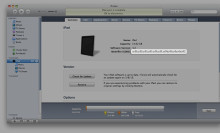When the FBI arrested LulzSec leader Hector "Sabu" Monsegur, they did so in a hurry—hours before the arrest, Sabu was doxed, his identity posted to the Internet. With his name public, federal agents feared that he would start destroying evidence to protect himself, so they ended their covert surveillance and moved in, according to Fox News.
Efforts to name and shame the LulzSec crew during its 50-day rampage were common. Many of these doxings were inaccurate, a result of faulty inferences or deliberate attempts to mislead on the part of the LulzSec hackers.












































































